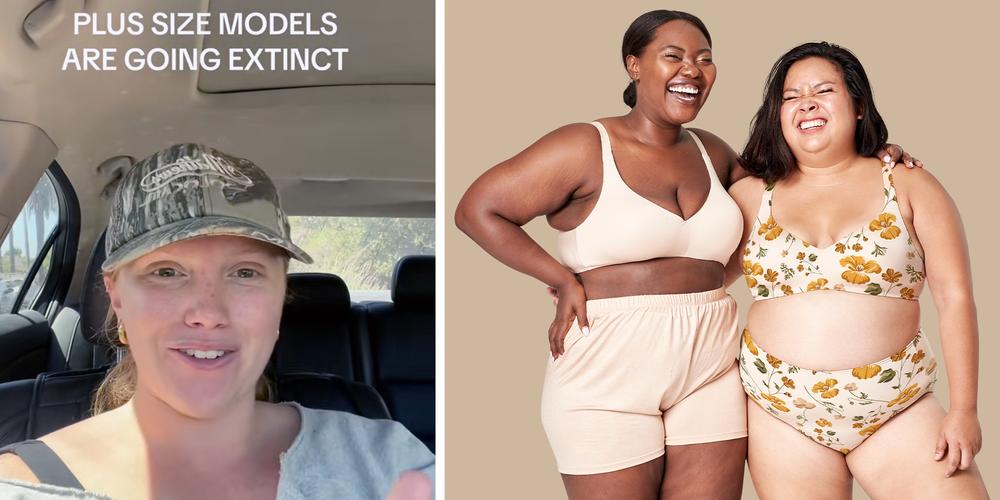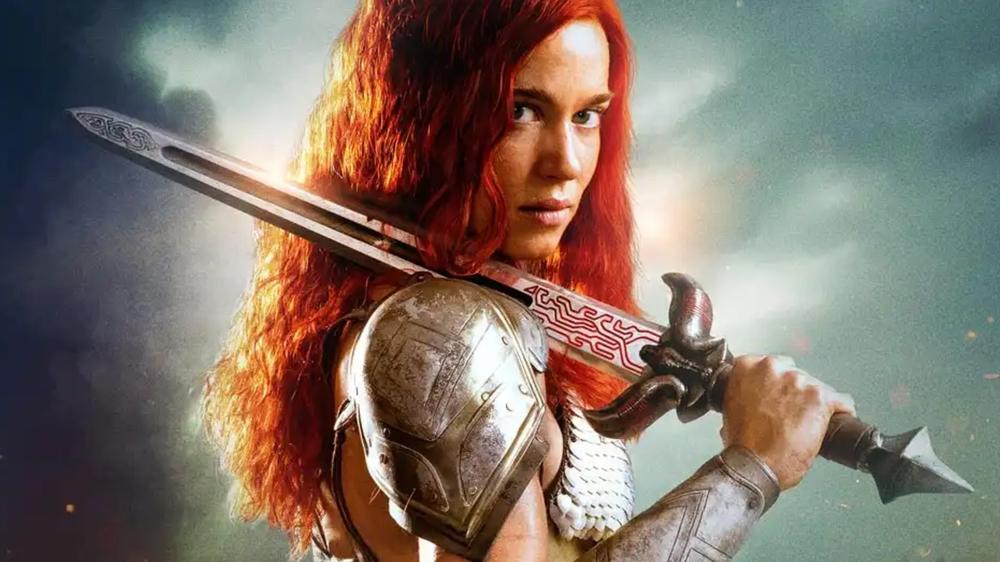Where have all the plus-size models gone?
Featured VideoModel Lynley Eilers (@lynleyeilers) posted a bleak TikTok last week, warning viewers that plus-size models just aren’t getting as much work anymore, while theorizing about both the reasons why and the potential repercussions that could be felt beyond the fashion industry.
“The plus-size models are going extinct,” she said in a video that’s been viewed over 602,500 times.
According to Eilers, the community of plus-size models is small enough that everyone knows each other, and that even the women who usually get a lot of work have been struggling over the past year.
Advertisement“Things ebb and flow, and there’s always some kind of middle ground. But what we’re seeing right now is severe,” she claimed.
@lynleyeilers 💔 #plussizemodels #plussizemodelslife #plussizeclothing #bodyinclusivity #bodyrepresentation ♬ original sound – lynleyeilers
Are fewer plus-size models getting work?
Publicly available information seems to back up Eilers’ concerns. According to the Vogue Business inclusivity reports, plus-size representation on the runway has consistently dropped over the past two seasons. Refinery29 noted earlier this year that the spring/summer 2020 season featured 86 plus-size models in four major cities, or 2.8% of the representation. By spring/summer 2025, that number was down to just 0.8%.
AdvertisementBut it’s hardly just runway fashion that’s seen a change, and that certainly wasn’t where Eilers’ concerns were focused. She alleged that clothing companies have stopped hiring professional plus-size models to shoot campaigns, opting instead to either recycle old campaigns, hire amateur talent willing to work for egregiously low rates, or have simply turned to AI. In some instances, they may just be misrepresenting what they’re working with.
“Brands that used to hire size 18 models like me are hiring size 14,” she said. “We’re seeing plus-size brands hire girls that aren’t even plus-size that they’re clipping into clothes, you know?”
Other plus-size models and content creators chimed in on Eilers’ video sharing their own recent experiences and echoing what she already said.
Advertisement AdvertisementThe ripple effect
As Eilers points out, the average American woman is plus-size, or roughly size 16-18. Part of the issue here isn’t just that plus-size models aren’t getting work, but that companies aren’t creating plus-size clothes.
“Brands continuously—continuously—will launch extended sizing and then…discontinue it because they say it doesn’t do well,” she said. “But the consistent thing is that they don’t put the same amount of marketing and effort into those initiatives as they do into straight sizes—especially when the consumer base is always telling people, ‘We literally want what the skinny bitches wear. We just want it in our size.’”
And she’s right again. Brands that once garnered good will for finally expanding into extended sizes have quietly backed away, or switched to only selling those options online rather than in store. Business Insider recently drew attention to several companies guilty of this in recent years, including Old Navy, Loft, and H&M. They also drew a correlation between some of these shifts and the rise in popularity of Ozempic—something Eilers mentioned in her TikTok as part of the cultural shift happening.
AdvertisementWhy does this matter?
As Eilers pointed out, the fact that plus-size women only have “a fraction of the options and the access to clothing,” especially in the U.S., is extremely frustrating. The demand is there, but brands repeatedly refuse to step up. Or when they do, they back down without putting in the work, without listening to the consumer base, and without actually trying to tap into a significant demographic.
But in terms of the actual plus-size models losing work, the TikToker lamented that she finds the regression in representation “really, really, really sad.”
Advertisement“I’m grieving my career,” Eilers admitted, “but I’m grieving the fact that this career always fulfilled something that I needed as a kid. I needed to see someone that looked like me. That would have changed my mentality, that would have changed my brain, that would have changed my life. And I’m just heartbroken that we’re taking so many steps back.”
Advertisement
 MCU rumored to adapt big Mephisto storyline and it involves the Midnight Sons
MCU rumored to adapt big Mephisto storyline and it involves the Midnight Sons